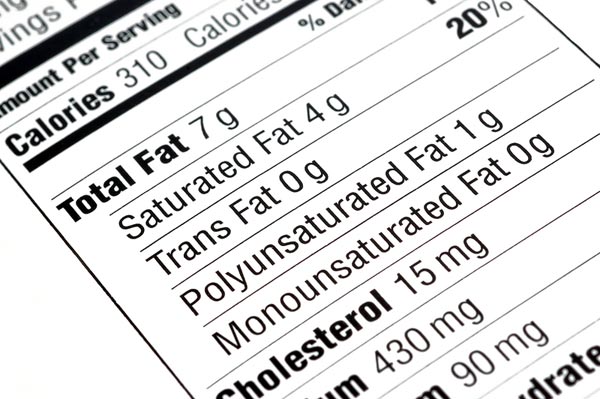Should You Stop Counting Calories?

To better fight obesity and its related diseases, people should stop counting calories and instead focus on eating nutritious foods, several researchers argue in a new editorial.
Similar to quitting smoking, people who change their diet can see rapid improvements in their heart disease risk, the researchers wrote. For example, in a study of 2,000 heart attack survivors, those who were advised to eat fish were less likely to die during the study period than those who were not advised to eat fish, with improvements starting within a few months of the diet change, the editorial says.
In contrast, eating trans fat, an unhealthy ingredient that used to be common in fast food, can increase the levels of inflammatory markers in a person's blood within weeks, according to the editorial, by Dr. Aseem Malhotra, a cardiologist at Frimley Park Hospital in the United Kingdom, and colleagues.
What's more, research suggests that not all calories are created equal. The editorial notes that drinking one can of soda, which has 150 calories, every day, is linked with an increased risk of Type 2 diabetes. On the other hand, eating a handful of nuts daily or consuming four tablespoons of extra virgin olive oil, each with 500 calories, is linked with a decreased risk of heart disease and stroke.
"Shifting focus away from calories and emphasizing a dietary pattern that focuses on food quality rather than quantity will help to rapidly reduce obesity, related diseases and cardiovascular risk," the editorial says. [9 Snack Foods: Healthy or Not?]
The researchers pointed to a 2013 study that suggested that dietary changes are linked with reductions in heart disease risk, regardless of changes in a person's weight. "Simply focusing on weight loss" in obese people misses this point, they said.
However, some experts disagreed with the advice to stop counting calories altogether. "It’s a bit of an exaggeration," said Katherine Tallmadge, a registered dietitian and op-ed contributor to Live Science. "I think you need to do both — concentrate on the quality of what you're eating, and make sure you're not eating too many calories," Tallmadge said.
Sign up for the Live Science daily newsletter now
Get the world’s most fascinating discoveries delivered straight to your inbox.
Tallmadge said that weight loss is often important to improving people's health, because obesity itself is a risk factor for several diseases. "It is critical that people get to their acceptable weight," Tallmadge said. "Body fat alone is toxic," and having an excess of it is linked with heart disease, cancer, diabetes, poor immune response and other conditions, she said.
The editorial says that making the choice to eat healthy food should be made easier, with policies such as taxes on sugary drinks and subsidies that increase the affordability of healthier foods, including fruits, vegetables and nuts. "Applying these populationwide policies might achieve rapid reductions in disease and hospital admissions, visible even within the electoral term of most politicians," the editorial says.
The editorial was published online Thursday (Aug. 26) in the journal Open Heart.
Follow Rachael Rettner @RachaelRettner. Follow Live Science @livescience, Facebook & Google+. Original article on Live Science.

Rachael is a Live Science contributor, and was a former channel editor and senior writer for Live Science between 2010 and 2022. She has a master's degree in journalism from New York University's Science, Health and Environmental Reporting Program. She also holds a B.S. in molecular biology and an M.S. in biology from the University of California, San Diego. Her work has appeared in Scienceline, The Washington Post and Scientific American.










